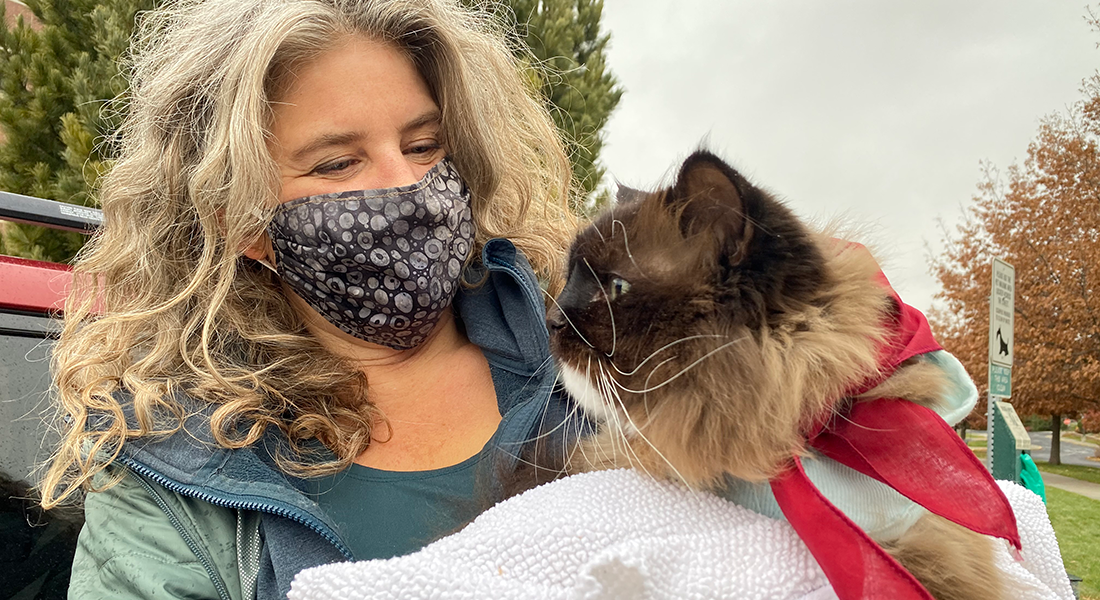‘I can’t lose him, not yet’

by Josh Babcock, College of Veterinary Medicine
At first, Mocha stopped eating. Then, his owner Sheila Evans realized he couldn’t see his food and he started to drag the paws on his left side.
“I thought it could be something neurological,” Evans said. “My veterinarian recommended Mocha go to Washington State University.”
It turns out Mocha had a brain tumor far too large for surgery. Whether it was cancerous or not is still a question, but without radiation treatment WSU veterinary oncologists estimate the 11-year-old rare Snowshoe breed cat would have only a few months to live.
Today, after a long four weeks, Mocha received what could be his final radiation treatment and his WSU cancer survivor scarf, just in case.
What happens next all depends on how the tumor responds to the radiation therapy. If the tumor has diminished in size, surgery could be an option. Continued radiation would be another.
Evans isn’t exactly sure of her plan for Mocha, but she knows it’s too early to say goodbye.
“I can’t lose him, not yet. I’m not ready,” Evans said.
Evans, who lives in Spokane, said Mocha was a gift from her late husband Paul who died from cancer a few years ago.
“He had his kids on Saturdays and they would run around Northwest Seed and Pet,” Evans said. “Paul saw Mocha and brought him home. He couldn’t help himself. He was a gift from Paul. Sort of a John Wick’s dog of cats.”
To Evans and Instagram, Mocha is known as Captain Cuddles.
“He is very snuggly and cuddly; he never uses his claws,” she said.
You can help animals like Mocha and give hope to those who love their animals when you support cancer care at the WSU Veterinary Teaching Hospital.
